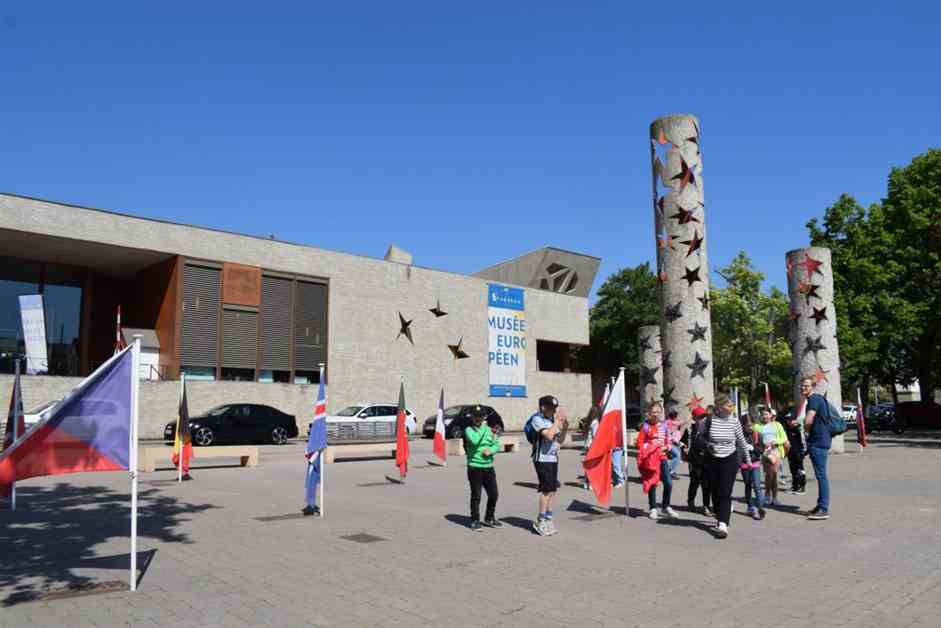Are the People of Lorraine More Mobilized for European Elections than Other French Regions?
Living in a cross-border region means being already oriented towards Europe. A geographical positioning that can weigh heavily when choosing European representatives.
On June 27th, the Olympic flame will pass through Moselle via a relay that will mark the importance of Europe in this territory. During the fourth stage of the journey, the Olympic torch will manage to cross three countries in just a few minutes: Apach in France, Saarland in Germany, and Schengen in Luxembourg, right where the 1990 agreements were signed. A characteristic specific to this territory that speaks volumes about the attachment of the people of Lorraine to this identity. Here, it is called the France-Germany-Luxembourg Tripoint.
Because in Lorraine, Europe is everywhere, both in the speeches of politicians who like to describe this territory as the « heart of Europe » and in the daily lives of its inhabitants. According to the interregional labor market observatory, in 2021, 124,220 people in Lorraine were working on the other side of the borders. A large majority headed towards Luxembourg, which is home to many European institutions (European Commission, Court of Justice of the European Union, European Court of Auditors, European Investment Bank, etc.) Therefore, it is legitimate to think that the participation rate here must be higher than elsewhere.
And yet, geography does not seem to weigh in on the interest shown in these elections. Just look at the official government figures from the last 2019 vote to see it. The people of Moselle and Meurthe-et-Moselle did not rush to the polls. The former had a participation rate of 47.14%, slightly lower than the national figure of 50.12%. While Meurthe-et-Moselle with its 50.45% falls between the national rate and the European rate frozen at 50.66%. This can be explained by the fact that « the people of Lorraine are more consumers than citizens, » says Roger Cayzelle, president of the Institute of the Greater Region.
However, there is still a positive point: participation in these elections has surged between 2014 and 2019, increasing by ten points in Moselle and eight in Meurthe-et-Moselle. Even though for both departments, it is the National Rally that comes out on top.

